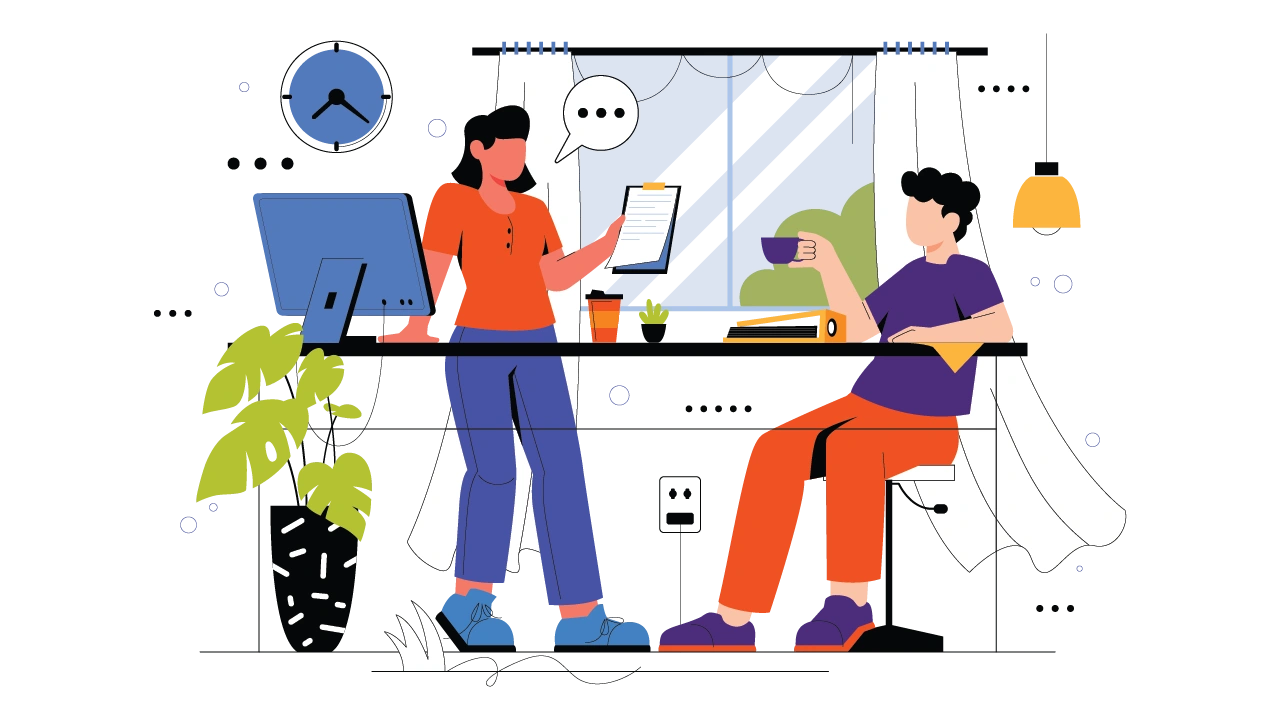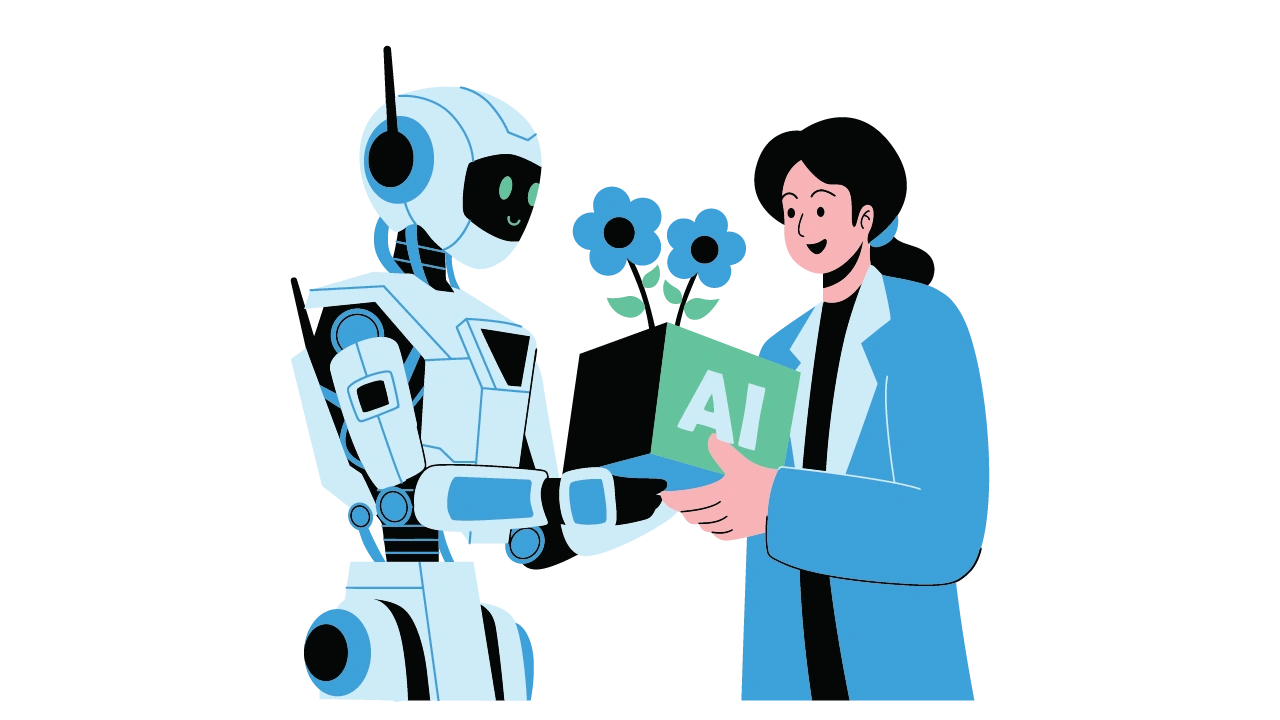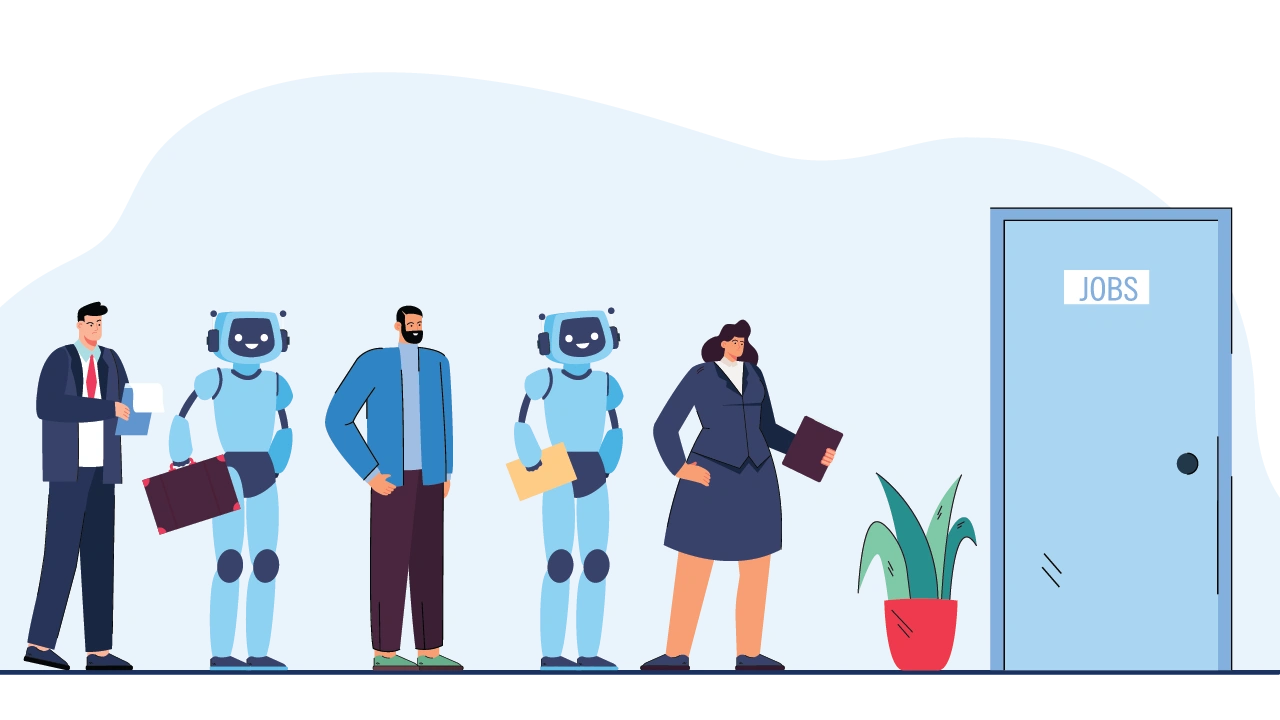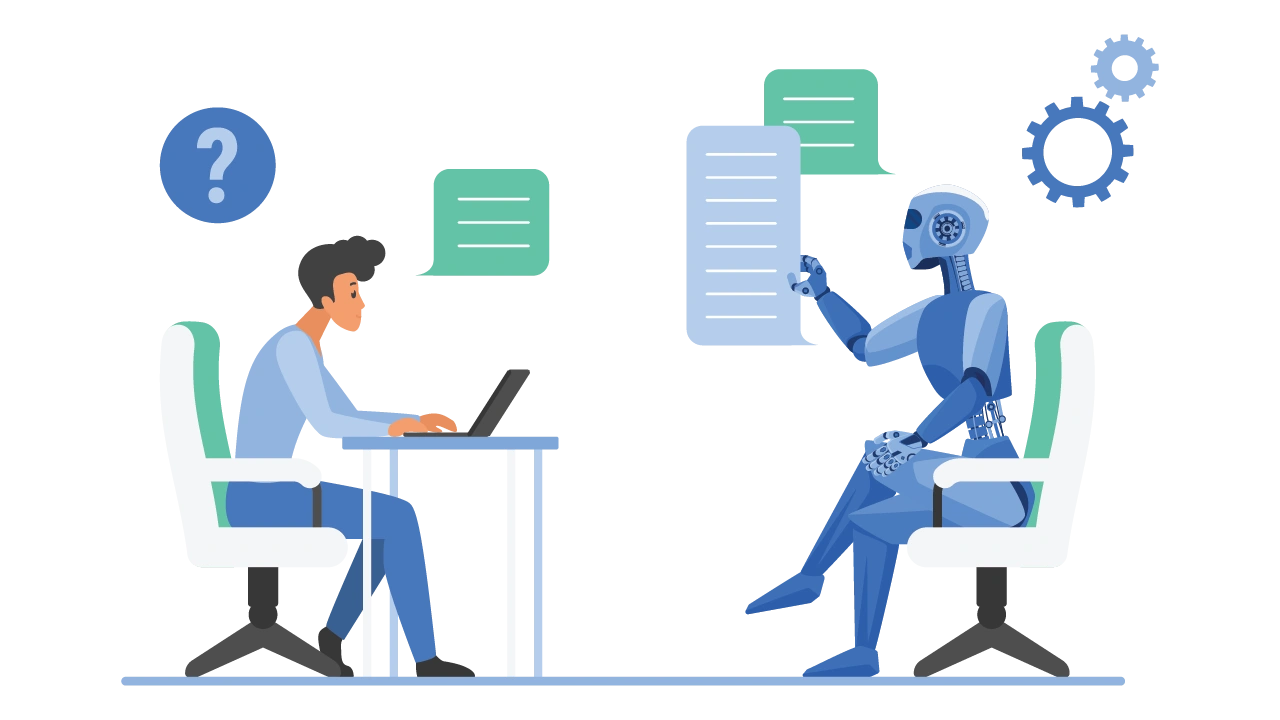


The pace of workplace transformation in 2025 is unlike anything seen before. From AI- driven automation to the evolution of hybrid work models, HR is no longer a support function—it’s the backbone of business resilience and innovation. As organizations navigate economic uncertainty, talent shortages, and digital disruption, the future of HR in 2025 will hinge on adaptability, empathy, and data-driven decision-making.
This year marks a turning point where HR leaders must balance technology and human connection, building workplaces that are both efficient and empathetic. In this article, we’ll explore the top HR trends reshaping the workplace in 2025, and what they mean for business leaders and employees alike.
The integration of AI in HR is transforming how companies attract, assess, and retain talent. From automating repetitive tasks to offering deeper workforce insights, HR teams are embracing intelligent tools to drive efficiency and fairness.
Recruitment in 2025 is powered by algorithms that can identify the right talent faster and with less bias. AI tools now analyze candidate profiles, predict cultural fit, and even automate parts of onboarding—ensuring new hires are engaged from day one. Predictive hiring models help organizations make smarter, data-backed decisions while enhancing the overall employee experience.
The era of annual reviews is fading. With AI-powered performance tools, managers now have access to real-time performance insights and continuous feedback systems. Automation not only saves time but also ensures fairness by minimizing human bias. This shift enables HR to focus more on coaching, development, and employee growth—key pillars of HR technology in 2025.
The pandemic redefined how we work—but 2025 is redefining why we work where we do. The hybrid work trend continues to evolve, emphasizing flexibility, inclusion, and performance-based outcomes.
Organizations are moving from “remote-first” to “flexible-first.” Employees expect freedom in choosing where and how they work, prompting HR teams to design adaptive workplace policies that blend autonomy with accountability. The focus has shifted to creating workplace transformation strategies that prioritize results over location.
Effective collaboration in hybrid settings requires more than just technology—it demands trust, communication, and inclusion. Companies are investing in tools that promote virtual collaboration, transparency, and engagement, ensuring no employee feels disconnected. This balance of flexibility and belonging defines the future of HR 2025.
In 2025, employee experience (EX) isn’t a perk—it’s a business strategy. Organizations that invest in holistic EX are seeing measurable gains in retention, innovation, and productivity.
Well-being has moved to the center of business strategy. Companies are offering burnout prevention programs, resilience workshops, and on-demand counseling. Leaders are being trained to recognize early signs of stress and support team mental health proactively—making wellness a key part of talent management trends.
Diversity, Equity, and Inclusion (DEI) continue to shape modern workplaces. In 2025, inclusive design extends beyond hiring to leadership development, policy-making, and physical workspaces. Embedding DEI in every stage of the employee lifecycle not only drives innovation but also strengthens organizational reputation and trust.
People analytics is revolutionizing HR decision-making. With access to real-time data, HR teams can predict trends, assess risks, and make proactive interventions that boost workforce performance.
Attrition prediction models help organizations identify flight risks early. By analyzing engagement levels, performance patterns, and sentiment data, HR can take targeted actions to retain top talent—saving time, money, and culture.
Modern HR platforms now link engagement metrics with business performance. This allows leaders to understand not just how much employees are working, but how effectively they’re contributing. Such insights turn HR into a strategic business partner capable of influencing growth outcomes.
As the workplace transforms, so must HR leadership strategies. The modern HR leader wears many hats—strategist, culture shaper, and digital innovator.
In 2025, HR leaders are stepping into boardrooms with data, empathy, and foresight. The shift is clear: from operational administrators to strategic architects of workforce transformation. Leadership development now emphasizes agility, digital literacy, and purpose-driven management—skills essential for navigating disruption and fostering a resilient, future-ready workforce.
Also Read : The Future of Work Is Now: 5 Trends CXOs Must Address in 2025
The HR trends of 2025 highlight one central truth: success lies in integrating technology with humanity. Organizations that adopt AI-driven solutions, promote flexible work, and prioritize employee experience will lead the way into the next era of work.
HR’s role is evolving from managing people to empowering them—and that shift defines the future of business success.
Learn how to stay ahead with [HR Trends 2025].
The most impactful HR trends in 2025 include AI-driven recruitment, automation of performance management, hybrid and flexible work models, a focus on employee experience, the rise of people analytics, and a renewed emphasis on DEI and mental well-being. Together, these trends are reshaping how organizations attract, engage, and retain talent.
AI in HR is streamlining recruitment, improving candidate matching, and enabling data-driven decision-making. It’s also helping HR teams automate administrative tasks, deliver real-time performance insights, and personalize employee experiences—making HR more efficient and strategic.
In 2025, employee experience (EX) is a key differentiator in attracting and retaining talent. Organizations that prioritize well-being, inclusion, and purpose-driven work cultures are seeing higher engagement, productivity, and loyalty. EX is now considered the “new currency” of business success.
Hybrid work trends are moving beyond simple remote setups. Companies are adopting “flexible-first” approaches, allowing employees to choose where and how they work. HR teams are focusing on collaboration tools, inclusive communication, and policies that balance autonomy with accountability.
People analytics enables HR leaders to make evidence-based decisions by tracking engagement, productivity, and attrition risks. Predictive analytics helps organizations identify patterns early, improve retention strategies, and align workforce insights with business outcomes.
To stay ahead, HR leadership strategies must evolve toward agility, empathy, and digital fluency. Future-ready HR leaders should embrace continuous learning, leverage technology for better decision-making, and foster cultures rooted in trust, inclusion, and adaptability.

In today’s rapidly evolving work landscape, the arrival of Agentic AI in the workplace is shifting the way teams function, decisions...

As artificial intelligence continues to reshape the workplace, a new frontier is emerging-one where human workers and AI agents...

The “Future of Work” is no longer a distant vision—it’s today’s reality. In 2025, global organizations are navigating a landscape...

In a world where distributed teams are the norm rather than the exception, the role of culture is under the microscope like never before...

We hear about AI everywhere - from headlines about job losses to promises of supercharged productivity...

In today's dynamic and often unpredictable business landscape, growth is the ultimate aspiration for small and mid-sized enterprises (SMEs)...